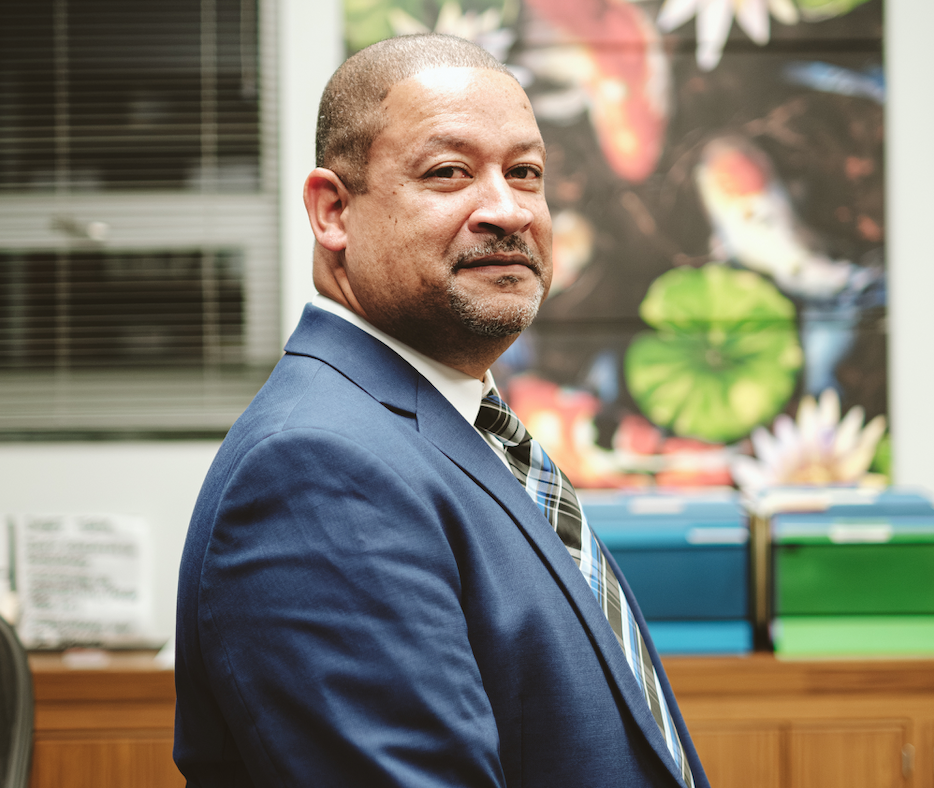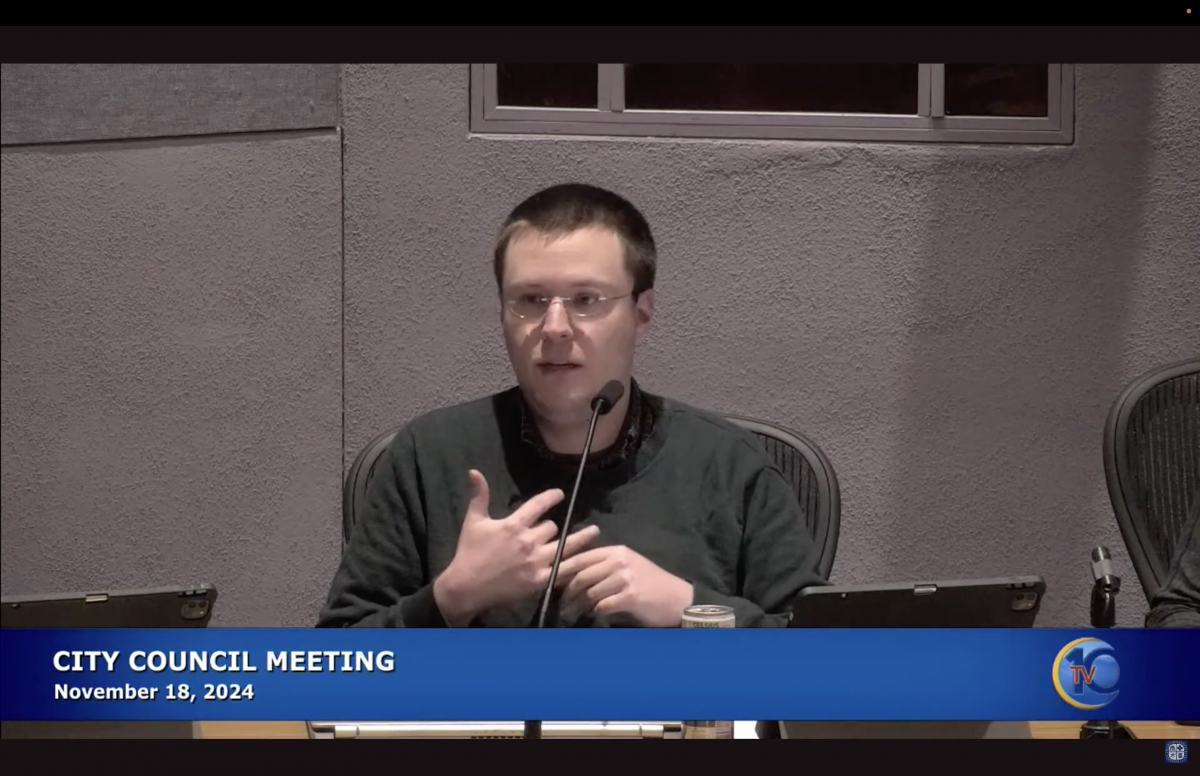At its penultimate meeting of 2024, Charlottesville City Council received its second budget briefing from City Manager Sam Sanders. In addition to the budget, the December 2 session focused on everything transportation—including the Virginia Department of Transportation portfolio, parking rules, and scooters.
In his briefing, Sanders outlined and affirmed council’s housing and infrastructure priorities for what’s expected to be a jam-packed budget.
Under housing, top items included the land bank, tax abatement programs, and the city’s commitment to housing accessibility.
Earlier this fall, $500,000 in funds previously allocated for the land bank, which aims to help with the area’s affordable housing crisis, were shifted to the purchase of Carlton Mobile Home Park, leaving the fund empty. Sanders proposed a $12 million investment in affordable housing for FY25, part of the city’s 10-year, $100 million commitment.
Sanders also emphasized the importance of funding work on the city’s long-overdue Americans with Disabilities Act transition.
“We’ve added a $2 million a year commitment. … I am not convinced that that’s enough to really, really demonstrate best effort. … The ADA is law, therefore it’s not optional,” said Sanders. “Let’s check our work and make sure … we’re getting these things done, and we’re checking things off the list. … Our prior transition, I can’t say that we did that.”
Under a Department of Justice settlement, Charlottesville would need to sideline or substantially reduce its spending on other priorities to quickly improve ADA compliance.
Transportation and accessibility were the focus of the council’s 6:30pm session, starting with a review and extension of the city’s permit agreement with micromobility company Veo.
As the only e-scooter and e-bike company permitted in the city, Veo has almost 7,000 users in Charlottesville and more than 250,000 rides annually. Over the past year, the city has worked with Veo to address persistent parking problems. Changes include more proactive issuance of violations and fines by Veo, the creation of recommended and mandatory parking zones, and added education and speed restrictions for new users.
Despite pressure from some constituents to eliminate scooters and e-bikes, council expressed support for extending Veo’s permit.
Council also decided to push back its vote updating the city’s parking rules after a contentious discussion and confusion over the legal definition of the word “truck.” Changes in the proposed ordinance include a ban on covering a vehicle’s identifying information with a tarp and a prohibition on street parking of vehicles with more than two wheels per axle.
In addition, councilors voted to right-size the city’s VDOT portfolio, canceling two projects and reducing the scope of others.
“We did not arrive at this conclusion very easily. This is not without a lack of consideration,” said Sanders. “It’s fair for people to be disappointed that we had to make changes. It is fair to be angry that we’re canceling projects.”
Though councilors inquired about potential ways to save the scrapped projects on Emmet Street and Fifth and Ridge streets, Sanders and Deputy City Manager for Operations James Freas said there is no wiggle room.
“While we have a very close working relationship with VDOT, VDOT has made it clear that this is the deal,” said Freas.
“VDOT district office has gone to bat for us, and secured the ability for some flexibility in the movement of money that is unheard of. … That gives us the best possibility for us delivering on what remains of our portfolio,” said Sanders.
One topic that was not addressed by City Council was the allocation of remaining American Rescue Plan funds.
In 2021, Charlottesville received $10,428,843 in ARP funding. On top of interest generated by the money, the city still has more than $3 million to allocate before the end of the year. Council’s last opportunity to appropriate the funds is on December 16, during its final meeting of the year.
“This is the last allocation, so everything else has been reviewed previously and presented,” Sanders told C-VILLE after the meeting. “This is just a cleanup action for what the remaining balance is.”
According to the city manager, decisions are still being finalized, but funds will likely go to projects supporting the unhoused.
“We recognize that when the federal government made the funding available, it was, ‘Let’s do what you can to [overcome] the impacts of COVID, but also do something significant in your community,’” said Sanders. “Addressing homelessness is a top priority.”





